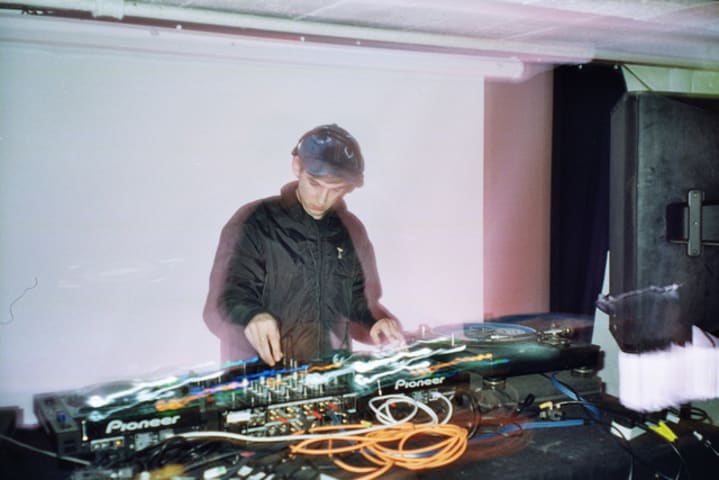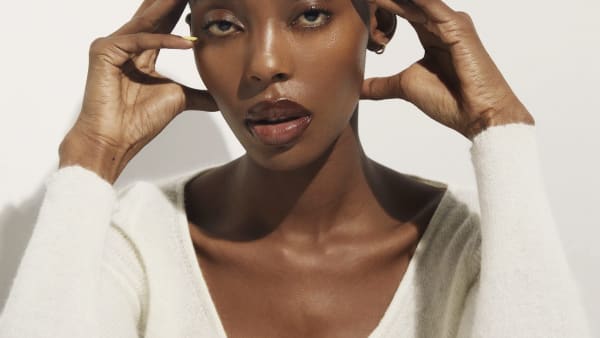

The Remix Album Defined 2020 — And Gave Dance Music a Social Bubble
How a maligned format became magical again, encouraging collaboration in lockdown and reminding acts like Aluna and Kero Kero Bonito of the remix's power.
“The first remix I was probably fully aware of was the Ed Case ‘refix’ of ‘Clint Eastwood’ by Gorillaz,” WHARFWHIT and Kero Kero Bonito producer Jamie Bulled tells me. “For my young brain it was mysterious and exciting, a rabbit hole I could jump down.” For DJ and dance artist Aluna, a good remix is “when you’re on the dancefloor and that combo of new and familiar just gets your ass bumpin’ in a particular, confident way—you know it, but it’s surprising you.”
While remixes have always been cool, the same hasn’t always been said about the remix album. But that hasn’t deterred indie faves like Metronomy, Foals, and maximalist pop duo 100 gecs from all releasing their own respectively reworked albums within the last twelve months. Other genres caught the fever this year, too: Club Future Nostalgia, The Blessed Madonna’s mashup take on pop titan Dua Lipa’s most recent LP, topped the US Billboard dance chart. Britney Spears did the same shortly thereafter with Oops!…I Did It Again (Remixes and B-Sides), a collection of 20-year-old remixes, and metallers Deftones will soon be releasing a new take on their 20th anniversary edition of their seminal album White Pony, featuring DJ Shadow, Squarepusher, and more.

The influence of a good remix has also been long underestimated; Ed Case’s famed 2001 garage reworking of Gorillaz, which inspired the young Jamie Bulled, is one example of the form’s power. It’s also an apt one, considering the original tune’s dubby nature, and that it was the dub genre which provided not just the origins of the remix album but also the remix itself. Dub albums started off in the 1960s as compilations of takes on various reggae originals. By the ’70s, it was common for Jamaican acts or their studio backing bands to release dubwise companions to the main vocal release. Every track was reworked instrumentally for dancehall audiences to enjoy, and island deejays to toast over.
While UK new wavers like The Human League and XTC began remixing their own albums in a dub style, most western remix albums by ’80s pop and new wave acts were compilations of 12″ single remixes and extended edits. These dancefloor-friendly cuts were more disco than dub, and usually engineered by the same producers behind the originals. It wasn’t until 1995 when Massive Attack and Mad Professor laid down the gauntlet for the alternative scene with dub remix LP No Protection. Soon after, both dance producers and indie acts would “frame” an artist or band—and themselves—for different kinds of dancefloors and audiences; think Air, Slum Village, and The Avalanches taking on Beck, Daft Punk and Badly Drawn Boy, respectively.
Club culture had already become mainstream enough by the ‘90s for house producers like “Little” Louie Vega to be tapped to create remixes, not just for singles and dancefloors, but also for the standard music consumer. It was No Protection, though, which made the remix album an event of sorts for the average listener who wouldn’t buy anything like a white label—not that the phenomenon was to last forever, though. “A cynical way of looking at it would be if artists are ‘brands’ then remixes would be a pop brand’s way of collaborating or associating with another ‘cooler’ brand,” Jamie offers. The same thought can be applied to alt rock, as in both pop and indie offshoots. The format would eventually become seen this century as a mere cash in, at least in the west. This was no better summed up than in the cheeky title of Aphex Twin remix comp, 26 Mixes for Cash.

While Mad Professor’s dub take on Massive Attack’s Mezzanine provided hope of the format’s return in 2018, it wasn’t until late last year that SOPHIE made the remix album an event once more, releasing her remixed take of her own acclaimed debut Oil of Every Pearl’s Un-Insides. Released by London’s Transgressive Records and spread across three CDs in a highly limited clutch bag, the album came from SOPHIE feeling “compelled to reimagine her entire album to ensure other sonic palettes were explored, and other ideas given a chance to breathe,” as Transgressive co-founder Toby L. reveals, recalling the classic tenets of dub. “Honestly, I think it’s just as strong a record,” he continues.
This element will show content from various video platforms.
If you load this Content, you accept cookies from external Media.
Prior to the SOPHIE record, arguably the only remix albums to get attention this century were 2005’s Nite Versions by Soulwax and 2011’s We’re New Here by Jamie xx vs Gil-Scott Heron. Outside of these milestones, it was dance producers who would keep the remix alive, especially those associated with the post-punk revival of the early 2000s from which Transgressive was born. “When we first started, the music scene largely comprised guitar music with fast BPMs and racing hi-hats that made people dance,” Toby tells me. “It was often a dream to get such songs remixed.”
The crossover between rock and dance music made Fatboy Slim-esque stars out of the likes of Kieran Hebden (A.K.A. Four Tet) and SebastiAn to the extent that releasing compilations of their remixes for others made more marketing sense than the original “one artist reworked” format of the remix LP. This year, though, saw history repeating itself in style through 1000 gecs and the Tree of Clues,’ 100 gecs’ remixed companion to their debut album. Featuring SOPHIE collaborators like GFOTY and A.G. Cook, fully steeped in their “hyperpop” sound, the release feels like something that came more from community than from consumerism, with each track being made exclusively for the album.
This element will show content from various video platforms.
If you load this Content, you accept cookies from external Media.
Like the cameo-laden Dua Lipa/Blessed Madonna mix, a lot of the remixes stem from collaboration, with Kero Kero Bonito (KKB) working with the likes of Charlie XCX and Rico Nasty to remix 100 Gecs. As Jamie says, KKB have released their own remix compilations in the past as a “way of working with artists we love and want our fans to listen to. As corny as it sounds, you can look at it as a dialogue between two artists within the same community.”
This autumn’s solo debut by Aluna, Renaissance, also came with a remix companion by talent from UK label Kiwi Rekords, founded by the producer Conducta. As she tells me, the release’s nostalgic garage represents, for her, “a legacy of Black UK dance music brought into the present. It’s also an example of rare community spirit within the music industry, to uplift and nurture within the Black community [making something] that’s inspiring and essential to the future of dance music.”

The idea of scenes and creatives coalescing may seem ironic in the year that COVID-19 has kept us apart, but ironically this is likely what led to the rise of the remix in 2020. Look at Tame Impala, who are currently dropping new Four Tet and Blood Orange remixes to sate hungry fans. This sort of crossover echoes the remix album’s purpose in the 1990s, introducing mainstream audiences to electronic music, whilst cannily filling a 21st century need for regular content. As Toby L. says, having a producer remix pre-existing material on their own is a lot less logistical than having the act they’re reworking hit the stage or make new content in the studio: “It’s challenging right now for a lot of artists and producers to get together in the same room, but technology means that anyone can get the stems of a song and reconstruct them into a new thing.”
“It all starts with a great song, or a strong hook. You have to have killer source material in order for a remix to really land. Remixes remain important, and yet only when they’re good. As ever, it’s about having a vision,” he continues. The old remix album is dead; long live the new remix album and the connections it fosters and forges.
Giacomo Lee is an author and journalist who’s been deputy editor for Digital Arts, talked creativity on the BBC and written for Red Bull, VICE, and Little White Lies. Read more at bygiacomolee.com.
Published November 29, 2020. Words by Giacomo Lee.






Follow @electronicbeats